Trump's EPA Chief Aided Polluters For Years. Now Suddenly He Says The Mess Is A Priority
WASHINGTON — If you listen to Environmental Protection Agency Administrator Scott Pruitt, the biggest environmental problem facing the United States isn’t climate change (he doesn’t think that’s real, anyway), or lead-tainted drinking water or brain-damaging pesticides. It’s that Barack Obama didn’t clean up the more than 1,300 most contaminated and hazardous sites across the country.
A Fox News headline earlier this month declared that Pruitt was here to clean up the Obama administration’s “toxic mess.” The former Oklahoma attorney general would have the American people believe that what the Superfund program really needs isn’t funding, it’s the right attitude.
“It’s not a matter of money,” Pruitt told Fox News. “It’s a matter of leadership and attitude and management.”
Pruitt has been fixated on the EPA’s Superfund, which is responsible for cleaning up highly contaminated sites, since taking over as agency chief in February. He’s called it “absolutely essential” and has repeatedly stressed that it’s part of EPA’s core mission. During an April visit to a lead- and arsenic-laden Superfund site in East Chicago, Indiana, Pruitt said he went there “because it’s important that we restore confidence to people in this community that we’re going to get it right going forward.” And he has blamed “poor leadership” and “poor focus” on the part of the Obama administration for there being more Superfund sites today than when Obama took office.
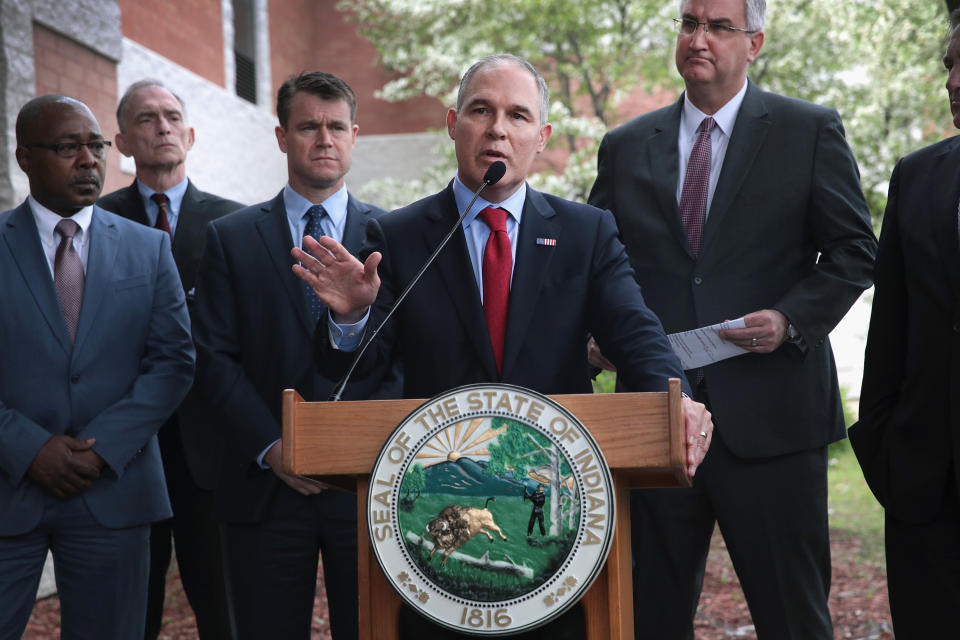
Superfund is an important part of EPA’s work, but Pruitt’s position fails to account for the history of the program. And every decision he’s made about it so far suggests he’s not serious about making it better. While he initially vowed to protect Superfund dollars, the 2018 budget the Trump administration released this month would slash EPA’s overall funding by 31.4 percent — to its lowest level in four decades — and cut Superfund from $1.09 billion to $762 million.
The administration argues that it can do more with less — that the EPA will “identify efficiencies in administrative costs” and “optimize” its use of settlements with polluters. The budget will also provide the agency with an “opportunity” to “identify what barriers have been preventing sites from returning to communities and design solutions to overcome those barriers,” the White House wrote in its justification for slashing Superfund.
Pruitt celebrated the budget proposal, saying in a statement that it “respects the American taxpayer” and “supports EPA’s highest priorities.”
But Superfund experts say Pruitt doesn’t seem to understand the basics of the program, which is designed to deal with expensive, complicated contamination cleanups that often have no responsible party and are not being handled at the state or local level.
“A cut to the program literally means longer exposure and preventing economic recovery for communities,” former EPA official Mathy Stanislaus told HuffPost. “The response should be fact-based. Tell me how the facts support cutting funding to a program that already has a backlog of sites?” Stanislaus oversaw Superfund as part of the EPA’s Office of Land and Emergency Management under Obama.
Christine Todd Whitman, who served as EPA administrator under President George W. Bush, said Superfund is yet another issue on which the Trump administration’s words and actions don’t match up.
“I don’t see how this program maintains its viability in any great way with these kinds of proposed cuts,” Whitman told HuffPost during a press call last week that included former leaders of several federal agencies. “And it just doesn’t make sense when they are talking about trying to address this problem.”
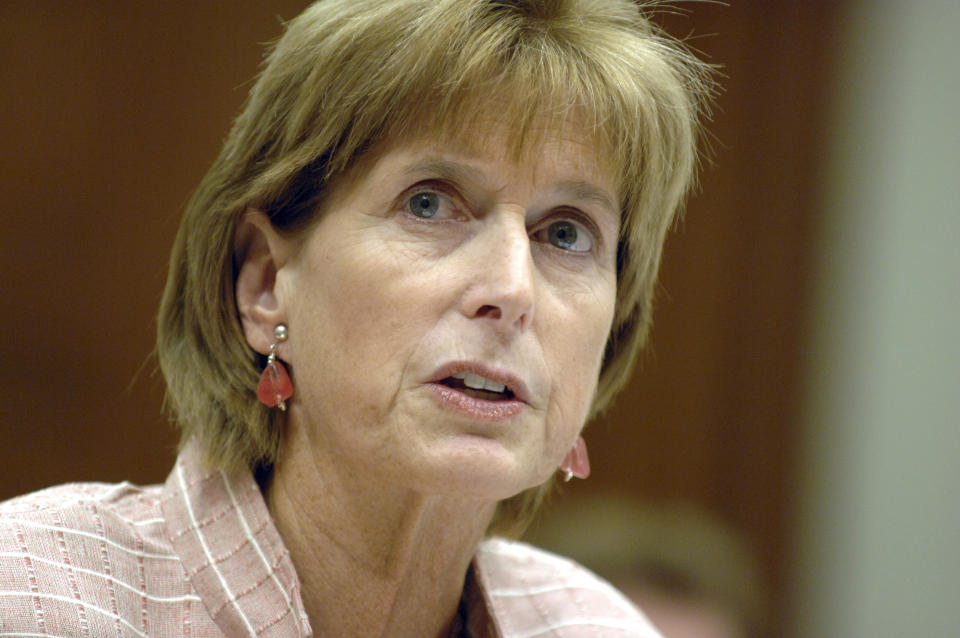
Established in 1980 in response to several environmental disasters, Superfund — formally the Comprehensive Environmental Response, Compensation, and Liability Act — is responsible for addressing areas contaminated with lead, radiation, mercury and other toxic pollutants, often left behind by industrial operations. The law authorized the federal government to force parties responsible for contamination to pay for cleanup costs and created a tax on the petroleum and chemical industries, two heavy polluters, to be pooled and used to clean up sites where a responsible party could not be found, called “orphan” sites. Areas requiring long-term remediation are put on the National Priorities List (NPL), but they often take years or even decades to clean up.
In many ways, Pruitt’s obsession with Superfund makes sense. As of 2015, 53 million Americans — 17 percent of the population — lived within three miles of a Superfund site. And the large number of toxic sites that remain on the NPL is something Pruitt has realized he can pin on past administrations for failing to address.
“Let’s look and think what the past administration achieved,” Pruitt said during a visit to a Pennsylvania coal mine last month, noting that there are still 1,322 sites. “Some of those have been on the list for 30 to 40 years.”
It’s true that the number of NPL sites increased during Obama’s two terms, from about 1,260 at the end of fiscal year 2008. But for Pruitt to point his finger at Obama shows the EPA administrator’s willingness to ignore the Superfund listing process and the extent of contamination in many areas, as well as the challenge he now faces as head of the agency.
The number of sites proposed for and listed on the NPL simply reflects that those areas have been found to pose a risk to human or environmental health, and it “has nothing to do with ‘management,’” Stanislaus told HuffPost.
Superfund’s problems have almost everything to do with resources, which have all but vanished over the last two decades. In 1995, Congress allowed the so-called “polluter pays” tax — which generated billions of dollars to fund orphan cleanups — to expire. The trust fund dried up several years later, with cleanup costs now falling largely on taxpayers via federal budget allocations. As money for cleanups has shriveled, fewer sites have been remediated.
From 1999 to 2013, federal appropriations to Superfund declined from about $2 billion to $1.1 billion per year, according to a 2010 Government Accountability Office report. In 1999, the program completed 85 site cleanups, compared with just eight in 2014.
Love HuffPost? Become a founding member of HuffPost Plus today.
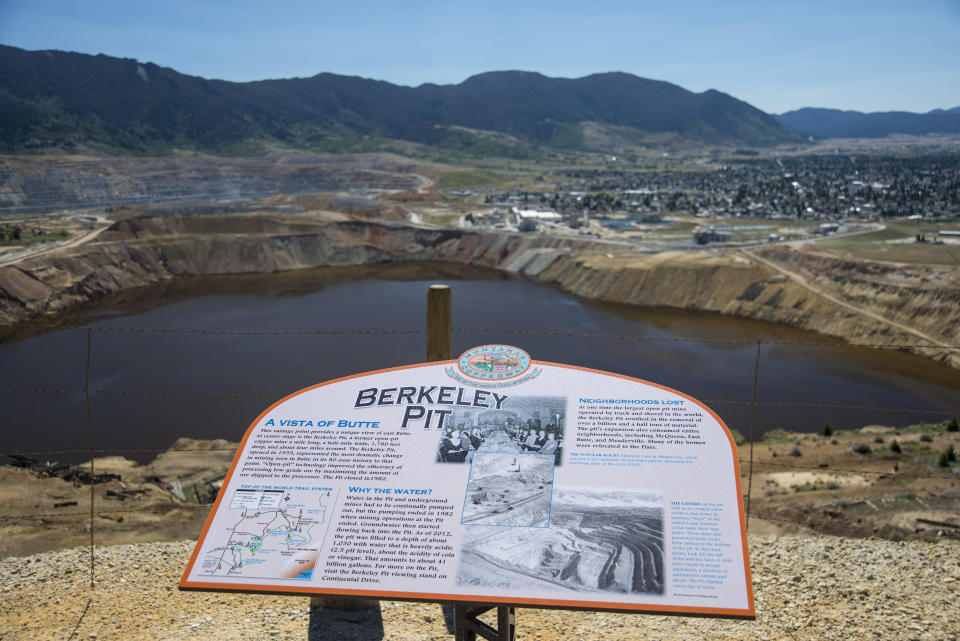
Over the years, several Democratic legislators have pushed for reinstating the Superfund tax, a move supported by the Obama administration, but the efforts failed.
Whitman fears the program won’t be able to function with additional cuts to staff and enforcement. She said enforcement is “critical” to get polluters to pay up.
But Pruitt, a longtime ally of the fossil fuel industry who sued the agency he now runs more than a dozen times as Oklahoma’s attorney general, insists Superfund will become self-sustaining under his watch. “The great thing about this is we have private funding. There are people out there responsible for these sites to clean up,” he told Fox News. “The moneys are there to do so.”
Stanislaus said there are some sites that provide the economic incentive for private interests to invest in redevelopment. “But to say that there’s this hidden pot of gold out there that can be brought to bear on a site, I don’t know what fantasy island that comes from, frankly.”
Nor does it seem likely that the Trump administration, which is stacked with industry lobbyists and fossil fuel allies, is going to be cracking down on polluters and forcing them to pay for cleanups. Ken Cook, president of the nonprofit Environmental Working Group, said in a statement that “there’s not a snowball’s chance in hell that polluters will be forced to pay for cleaning up their toxic messes that endanger Americans’ health” under Trump and Pruitt’s watch.
Those appointed to help Pruitt in his Superfund efforts so far have been less than inspiring choices. This month, Trump nominated Susan Bodine, chief counsel for the Senate Committee on Environment and Public Works, whom The Intercept described as a “lobbyist for Superfund polluters,” to serve as assistant administrator of EPA’s Office of Enforcement and Compliance Assurance. And Pruitt has chosen Albert Kelly, a longtime banker with no apparent experience in environmental policy, to lead a new Superfund task force.
The task force, which was announced last week, will provide recommendations to the agency on how to “streamline and improve the Superfund program” within 30 days. In a statement accompanying his announcement, Pruitt said he is “confident that, with a renewed sense of urgency, leadership and fresh ideas, the Superfund program can reach its full potential of returning formerly contaminated sites to communities for their beneficial use.”
Wilma Subra, a Louisiana-based chemist and Superfund expert, told HuffPost that it’s not clear what Pruitt means when he says he will reprioritize Superfund cleanups or if he will change the general understanding of what it takes for a site to be considered clean and thus eligible to be removed from the list. Until that’s more clear, Subra said, Pruitt’s claims are just a “talking point.”
“Is it going to be a little small slice of [Superfund] he’s going to prioritize, and the rest is going to sit there and languish?” she asked.
Stanislaus shares her concern that Pruitt may shortcut cleanups in order to cut costs. Doing so, Stanislaus said, would be “shortsighted” and come with health and economic consequences. Likewise, research has shown that investing in a Superfund site can increase property values and fuel job growth. Not to mention the positive effects that cleanup efforts have on human health.
Andrew Rosenburg, director of the Center for Science and Democracy at the Union of Concerned Scientists, said Pruitt’s Superfund talk is “smoke and mirrors.”
“To simply wave your hands and say ‘We’re going to clean it up’ at the same time as you’re reducing the resources, both people and money available to do it, is frankly nonsense,” Rosenburg told HuffPost.
Also on HuffPost
He has threatened to undermine protections for air and water.

Since taking office as Oklahoma’s attorney general in 2011, Pruitt has sued the Environmental Protection Agency on multiple occasions in an effort to overturn rules limiting air pollution from power plants -- including the Cross-State Air Pollution Rule, which curbs power plant emissions of sulfur dioxide and nitrogen oxides, and the Mercury and Air Toxics Standards, which place limits on the amount of mercury, arsenic and other toxic pollution.
As Elliott Negin, a senior writer at the Union of Concerned Scientists, explained in January, those are both life-saving regulations: “Taken together, they are projected to prevent 18,000 to 46,000 premature deaths across the country and save $150 billion to $380 billion in health care costs annually. In Pruitt’s home state, the two regulations would avert as many as 720 premature deaths and save as much as $5.9 billion per year.”
Pruitt sued the EPA in 2015 over the Waters of the United States rule -- which, in a piece co-written with Sen. Rand Paul (R-Ky.), he called the “greatest blow to private property rights the modern era has seen.” The rule, which is currently tied up in the courts, extends EPA protection to tens of millions of acres of wetlands and millions of miles of streams, including those that 1 in 3 Americans rely on for drinking water.
Pruitt also sued the EPA over its 2015 regulation strengthening the national health standards for ground-level ozone or smog pollution.
Several of these lawsuits are still ongoing, and environmental advocates have called on Pruitt to recuse himself from decisions related to the regulations he’s challenged in court. Legal experts told Bloomberg, however, that they knew of no rules in place that would compel such an action on Pruitt’s part.
“Every American should be appalled that President-elect Trump just picked someone who has made a career of being a vocal defender for polluters to head our Environmental Protection Agency,” Trip Van Noppen, president of Earthjustice, said in a December 2016 statement. “He has fought Environmental Protection Agency pollution limits on toxic substances like soot and mercury that put us all at risk for increased cancer, childhood asthma and other health problems. He falsely claims that fracking doesn’t contaminate drinking water supplies.”
He doesn’t think the EPA is the “nation’s foremost environmental regulator.”
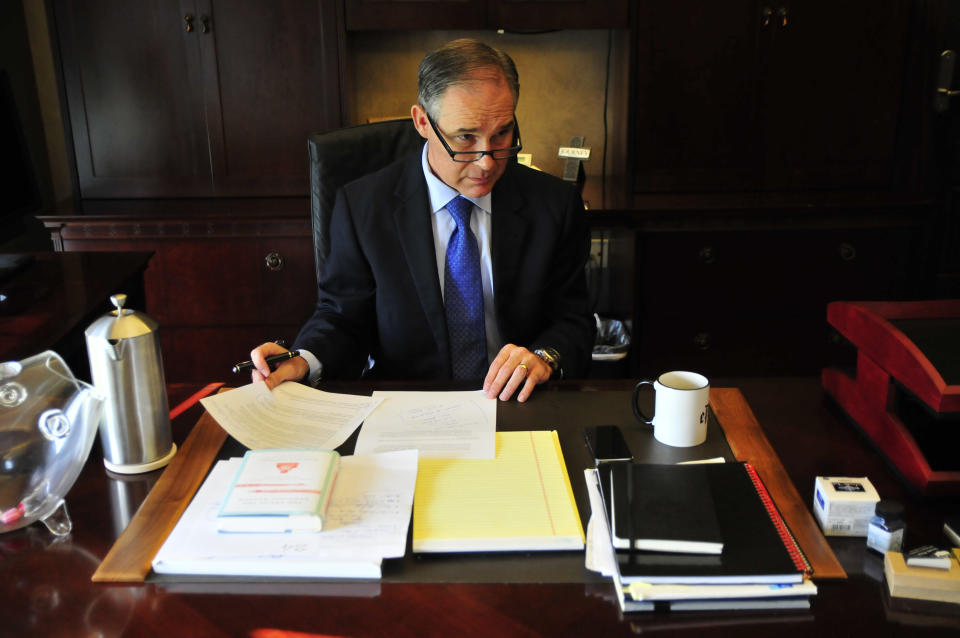
“The states,” he said, “were to have regulatory primacy.”
As Oklahoma’s attorney general, Pruitt created a “federalism unit” with the specific aim of opposing federal protections and safeguards, including the Affordable Care Act and environmental regulations.
Under Pruitt, the EPA will likely witness “an increasing effort to delegate environmental regulations away from the federal government and towards the states,” Ronald Keith Gaddie, a professor of political science at the University of Oklahoma, told The New York Times.
Though states may be best equipped to regulate certain industries, some experts have stressed that environmental protection is one area that needs more federal oversight.
“Pollution doesn’t respect state boundaries,” Patrick A. Parenteau, a professor of environmental law at Vermont Law School, told the Times. “States have limited ability to regulate pollution from outside the state, and almost every state is downstream or downwind from other pollution.”
He doesn’t believe in climate change.
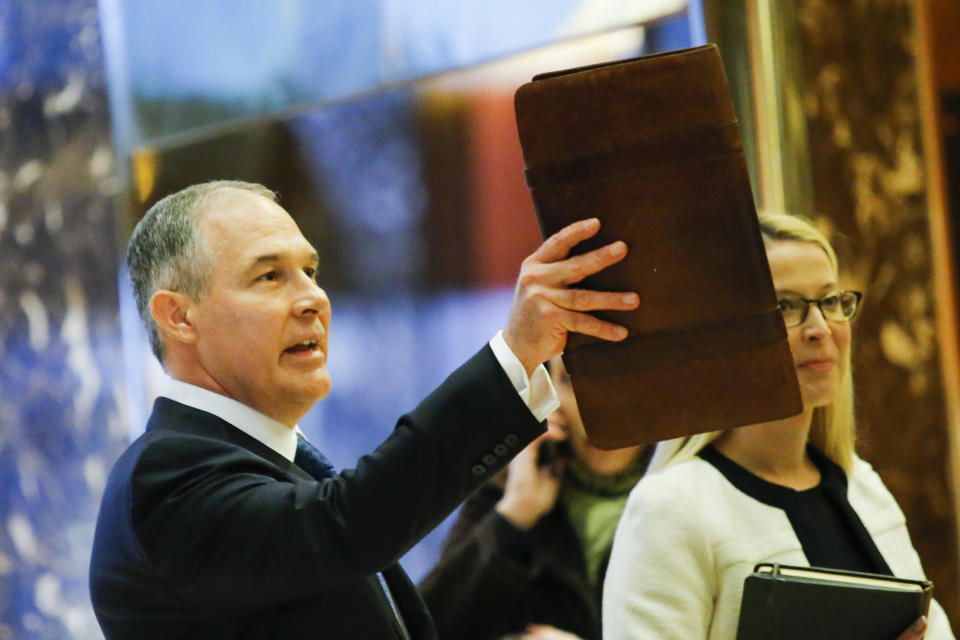
“Climate change is happening,” the agency said on its website, adding that the EPA is “taking a number of common-sense steps to address the challenge” of warming, such as developing emissions reduction initiatives and contributing to “world-class climate research.”
Pruitt, like most of Trump’s Cabinet picks, is a climate change denier. Ignoring the overwhelming scientific consensus on the matter, Pruitt wrote last year that the debate on climate change is “far from settled.”
Gina McCarthy, the previous EPA chief, warned in November that denying the facts about climate change would undermine the United States' success both domestically and internationally. Other countries “are wondering if the U.S. will turn its back on science and be left behind,” she said.
“The train to a global clean-energy future has already left the station,” McCarthy added. “We can choose to get on board — to lead — or we can choose to be left behind, to stand stubbornly still. If we stubbornly deny the science and change around us, we will fall victim to our own paralysis.”
He’s a close ally of the fossil fuel industry ...
![… and their relationship has observers deeply concerned.<br /><br />Since 2002, Pruitt has received <a href="https://www.theguardian.com/us-news/2016/dec/08/scott-pruitt-trump-administration-epa-oil-gas-environment" target="_blank">more than $300,000</a> in contributions from the fossil fuel industry, including from political action committees connected to Exxon Mobil, Spectra Energy and Koch Industries. The New York Times reported in 2014 that he and other Republican attorneys general had formed an “<a href="https://www.nytimes.com/2014/12/07/us/politics/energy-firms-in-secretive-alliance-with-attorneys-general.html" target="_blank">unprecedented, secretive alliance</a>” with major oil and gas companies to undermine environmental regulations. One of the firms, Oklahoma’s Devon Energy,<strong> </strong>drafted a letter for Pruitt to send to the EPA in 2011. Pruitt <a href="http://www.sierraclub.org/sierra/green-life/meet-scott-pruitt-man-picked-lead-epa" target="_blank">printed the document on state letterhead</a> and sent it off, almost verbatim, to Washington.<br /><br />As attorney general, Pruitt also filed several lawsuits with industry players, including Oklahoma Gas and Electric and the Domestic Energy Producers Alliance, a nonprofit group backed by major oil and gas executives. In May 2016, Pruitt joined then-Alabama Attorney General Luther Strange in writing an opinion piece defending Exxon Mobil and other energy groups, after the oil giant <a href="https://www.bloomberg.com/news/articles/2016-03-30/oklahoma-alabama-support-exxon-mobil-in-ny-led-climate-probe" target="_blank">came under scrutiny</a> for allegedly failing to disclose its internal research on climate change.<br /><br />The Times asked Pruitt in 2014 whether he’d been wrong to send letters to the federal government written by industry lobbyists, or to side with them in litigation. Pruitt was unapologetic. <br /><br />“The A.G.’s office seeks input from the energy industry to determine real-life harm stemming from proposed federal regulations or actions,” his office said in a statement. “It is the content of the request not the source of the request that is relevant.”<br /><br />Opponents, however, say Pruitt is a <a href="http://www.politico.com/blogs/donald-trump-administration/2016/12/oklahoma-ag-pruitt-epa-chief-232319" target="_blank">Big Oil ally</a> — someone who, as EPA administrator, could <a href="https://www.desmogblog.com/2017/01/13/mapping-epa-nominee-scott-pruitt-many-fossil-fuel-ties" target="_blank">prioritize industry interests</a> over the health of the environment and the American people.<br /><br />“This is a frightening moment,” Harvard University professor Naomi Oreskes said at a rally <a href="https://eos.org/articles/fearful-of-trump-hundreds-in-san-francisco-rally-for-science">in December</a>, referring to Trump's Cabinet picks. “We have seen in the last few weeks how the reins of the federal government are being handed over to the fossil fuel industry.”<br /><br />“From denying settled climate science to leading the opposition of EPA’s Clean Power Plan, Pruitt has sent a loud and clear message to Big Oil and its well-funded mouthpieces that <a href="http://www.motherjones.com/environment/2017/01/climate-deniers-coming-next-epa-chief-rescue" target="_blank">he’s their guy</a>,” said Sen. Sheldon Whitehouse (D-R.I.), who is one of the senators calling for Pruitt to disclose more details on his connection to some oil-funded groups, according to Mother Jones. “To put a climate denier at the helm of an agency working to keep our environment safe is as dangerous as it gets.” <br /><br />Sen. Bernie Sanders (I-Vt.), a member of the Senate Environment and Public Works Committee, echoed similar concerns: “The American people must demand leaders who are willing to transform our energy system away from fossil fuels. I will <a href="https://thinkprogress.org/pruitt-epa-confirmation-fight-preview-400e8a68ffc2#.ca0qfw6f4" target="_blank">vigorously oppose this nomination</a>.”<br /><br />It’s not just Pruitt’s fossil fuel connections that have raised eyebrows. A recent <a href="http://www.ewg.org/research/ewg-investigates-scott-pruitt-and-poultry-pollution" target="_blank" data-beacon="{"p":{"mnid":"entry_text","lnid":"citation","mpid":1,"plid":"http://www.ewg.org/research/ewg-investigates-scott-pruitt-and-poultry-pollution"}}">Environmental Working Group investigation</a> found that Pruitt gave a <a href="http://www.huffingtonpost.com/entry/scott-pruitt-poultry-contributions-lawsuit_us_587960bae4b0e58057fee7bd">regulatory pass to polluters from the poultry industry</a> after receiving $40,000 in campaign donations from executives and lawyers representing poultry companies. <br /><br />“Very clearly, this is someone coming in [to lead the EPA] with an ideology to deregulate at whatever government level he finds himself,” Cook, the EWG head, <a href="http://www.huffingtonpost.com/entry/scott-pruitt-poultry-contributions-lawsuit_us_587960bae4b0e58057fee7bd">told The Huffington Post</a>. “There’s no saying that ‘we just have a different philosophy’ about who should enforce environmental law. The philosophy, if it exists, is that environmental policy shouldn’t be enforced at a state or federal level. It is industry unrestrained.”](https://s.yimg.com/ny/api/res/1.2/QHwf0rgUeS5o401raGlSXA--/YXBwaWQ9aGlnaGxhbmRlcjt3PTk2MA--/https://img.huffingtonpost.com/asset/587dc4731700002e00fdf034.jpg)
Since 2002, Pruitt has received more than $300,000 in contributions from the fossil fuel industry, including from political action committees connected to Exxon Mobil, Spectra Energy and Koch Industries. The New York Times reported in 2014 that he and other Republican attorneys general had formed an “unprecedented, secretive alliance” with major oil and gas companies to undermine environmental regulations. One of the firms, Oklahoma’s Devon Energy, drafted a letter for Pruitt to send to the EPA in 2011. Pruitt printed the document on state letterhead and sent it off, almost verbatim, to Washington.
As attorney general, Pruitt also filed several lawsuits with industry players, including Oklahoma Gas and Electric and the Domestic Energy Producers Alliance, a nonprofit group backed by major oil and gas executives. In May 2016, Pruitt joined then-Alabama Attorney General Luther Strange in writing an opinion piece defending Exxon Mobil and other energy groups, after the oil giant came under scrutiny for allegedly failing to disclose its internal research on climate change.
The Times asked Pruitt in 2014 whether he’d been wrong to send letters to the federal government written by industry lobbyists, or to side with them in litigation. Pruitt was unapologetic.
“The A.G.’s office seeks input from the energy industry to determine real-life harm stemming from proposed federal regulations or actions,” his office said in a statement. “It is the content of the request not the source of the request that is relevant.”
Opponents, however, say Pruitt is a Big Oil ally — someone who, as EPA administrator, could prioritize industry interests over the health of the environment and the American people.
“This is a frightening moment,” Harvard University professor Naomi Oreskes said at a rally in December, referring to Trump's Cabinet picks. “We have seen in the last few weeks how the reins of the federal government are being handed over to the fossil fuel industry.”
“From denying settled climate science to leading the opposition of EPA’s Clean Power Plan, Pruitt has sent a loud and clear message to Big Oil and its well-funded mouthpieces that he’s their guy,” said Sen. Sheldon Whitehouse (D-R.I.), who is one of the senators calling for Pruitt to disclose more details on his connection to some oil-funded groups, according to Mother Jones. “To put a climate denier at the helm of an agency working to keep our environment safe is as dangerous as it gets.”
Sen. Bernie Sanders (I-Vt.), a member of the Senate Environment and Public Works Committee, echoed similar concerns: “The American people must demand leaders who are willing to transform our energy system away from fossil fuels. I will vigorously oppose this nomination.”
It’s not just Pruitt’s fossil fuel connections that have raised eyebrows. A recent Environmental Working Group investigation found that Pruitt gave a regulatory pass to polluters from the poultry industry after receiving $40,000 in campaign donations from executives and lawyers representing poultry companies.
“Very clearly, this is someone coming in [to lead the EPA] with an ideology to deregulate at whatever government level he finds himself,” Cook, the EWG head, told The Huffington Post. “There’s no saying that ‘we just have a different philosophy’ about who should enforce environmental law. The philosophy, if it exists, is that environmental policy shouldn’t be enforced at a state or federal level. It is industry unrestrained.”
This article originally appeared on HuffPost.

